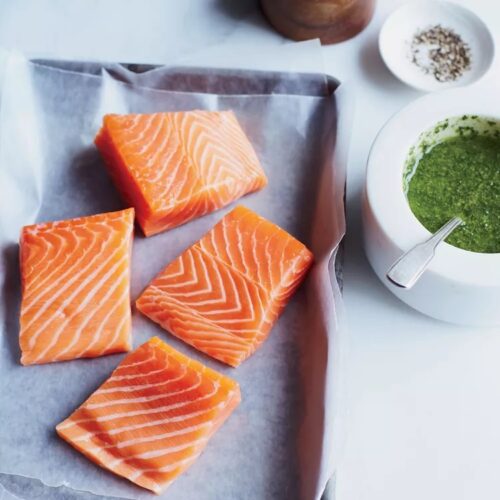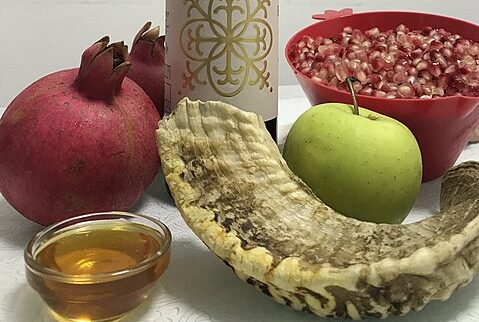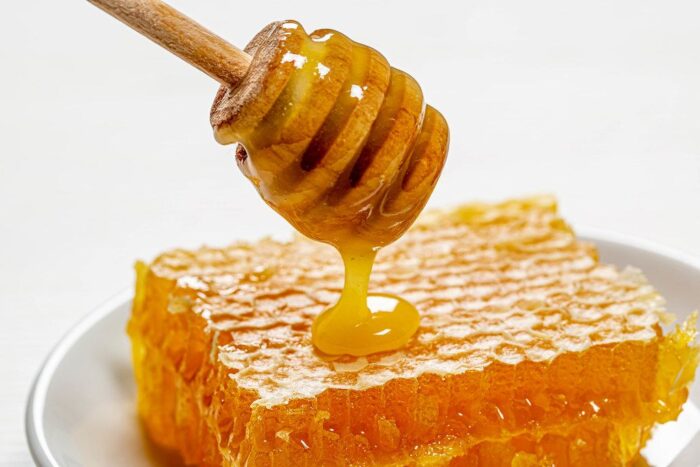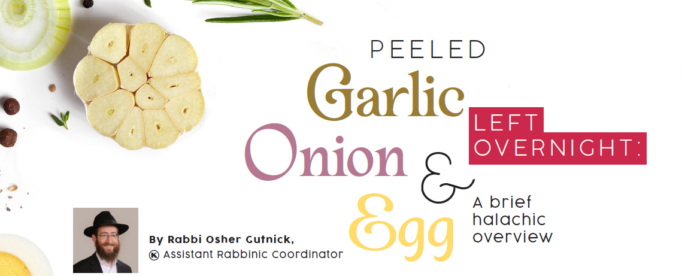What are Potatoes?
Potatoes are one of the major food crops grown around the world and are a staple in many homes, especially during Pesach. They are easily accessible, easy to store, affordable, and versatile. Potatoes can be prepared in numerous ways – boiled, roasted, or mashed as a hot side dish, processed into French fries or potato chips, or turned into flakes or starch. Potatoes are a raw material in many food products.
The potato is native to Peru and Bolivia. The Spanish introduced potatoes to Europe in the second half of the 16th century and, from there, spread all over the world. Today there are over two hundred different varieties of potatoes on the market. The average potato has only 110 calories and is a good source of vitamin C and potassium.
How are potato products produced?
Starch:
Raw potatoes are washed and ground, the proteins are removed, and the rest is centrifuged to separate and remove the fibers and remaining proteins. At this point, the water is removed in a vacuum filter and the product is then dried in a dryer resulting in a finished product which is a native starch that can be sold as is or modified with chemicals or enzymes to change the characteristics of the starch, to work better with the desired end products.
Flakes:
Potatoes are washed, steam-peeled, cut, and then blanched with hot water. The blanching deactivates the natural enzymes in the potatoes and improves the color, flavor, and texture as well as reducing the needed cooking time of the potatoes. The potatoes are then cooked with live steam, mashed, and mixed with additives, such as emulsifiers (processing aid for the drying process and to improve the texture), color, and preservatives. Finally, the mixture is dried on a hot drum that turns it into a sheet of dry potatoes, and then it is crushed into flakes and packaged.
French Fries:
The potatoes are washed, steamed, peeled (if required), cut to size, and then blanched in hot water. Colors and other additives can be sprayed on the product. The potatoes are then dried in a dryer. At this point, a batter might be applied to the product. Then the potatoes are fried, frozen, and packaged.
Are processed potatoes kosher? Do Potatoes Require Bishul Yisroel?
The Shulchan Oruch (YD 113:1) states that there is a Rabbinic obligation that food should be cooked through a Jew if there are two conditions: 1. The food is not edible raw. 2. The cooked food is something that is “fit for a king’s table”. In our days, the equivalent of a king’s meal is a type of food that would be served at an important meal, such as a wedding.
Potatoes are not edible raw, so the question is if they are considered “fit for a king’s table”. The Chochmas Adam writes that potatoes are considered “fit for a king’s table”. However, the Oruch HaShulchan (YD 113:18) writes that potatoes are considered unfit for a king’s table since it is poor people’s food and not an important food. He continues to say that it could be that in the time of the Chochmas Adam, potatoes were new to that part of the world and therefore considered to be a fancy food, but this is no longer the case.
The consensus today is that when potatoes are cooked in a way they could be served as a side dish at a wedding, they require bishul Yisroel because a food’s importance is judged based on the current practices.[1]
Potato Starch:
Native starch is processed with kosher ingredients; however, it could potentially share equipment with wheat starch and should have kosher supervision for Pesach.
Modified starch can be processed with enzymes and therefore always requires certification for year-round and Pesach.
Potato Flakes:
Shulchan Oruch (YD 113:13) states that any food that is prepared through smoking is not considered cooking (for bishul akum). Some Poskim hold that the same applies to cooking with steam.
Rav Moshe Feinstein ruled that the concern of bishul akum does not apply to foods cooked in a factory, using equipment and processes that are entirely different to the regular cooking method in a home environment.
When processing potato flakes, the potatoes are fully cooked before they are processed into potato flakes. The policy of all the major kashrus agencies is to allow the certification of the flakes without Bishul Yisroel based on the combination of both of the above opinions.[2]
The emulsifiers that are added into the flakes are kosher sensitive since they can be processed from vegetable oils or animal fat and therefore always require reliable certification.
French fries:
The ~ requires Bishul Yisroel for French fries and potato chips if the heating source is not steam.[3]
The batter used on the French fries can contain non-kosher ingredients, such as cheese powders, which can compromise the kosher status of the equipment and the oil. In addition to making sure the new oil is kosher, the kashrus agency needs to make sure that the same oil was not used to process any dairy or non-kosher products. They also need to make sure that no used oil is transferred from a different processing line or even from a different manufacturing facility unless it is oil that is approved for kosher pareve production.
At food service establishments, French fries are usually prepared in deep fryers using the same oil as other products and therefore have the same kosher status. At a meat restaurant, the French fries are usually processed in the same fryers as other meat items. And in a dairy restaurant, they are usually fried using the same oil as other dairy products, such as cheese sticks.[4] Needless to say, French fries coming from a non-kosher establishment are considered non-kosher.
Kitniyos:
The Chayei Adam[5] ruled that potatoes are considered kitniyos because they can be processed into potato flour, which looks just like regular flour. However, this opinion was not accepted. The Pri Megadim[6] writes that potatoes are not considered kitniyos. Rav Moshe Feinstein explains (Igros Moshe AC 3:63) that potatoes were not around when the kitniyos custom was established and was not added later because there was no strong reason to do so, and they were very needed.
[1] See Chelkas Binyamin YD 113:9.
[2] See Minchas Yitzchok 3:26, 6.
[3] This was a chumra held by Rabbi Don Yoel Levy, OB”M, Kashrus Administrator of the ~ from 1987-2020. The ~ continues to uphold this chumra.
[4] A dedicated fryer or special arrangements need to be made in restaurants that have meat and fish fryers to make sure that no meat meal will be served with fries from the fish fryer or vice versa.
[5] נשמת אדם שאלה כ.
[6] אורח חיים תס”ד, א”א א.
Rabbi Hendel is a member of the OK Kosher Vaad HaKashrus.


 EN
EN  ZH
ZH  KR
KR  BR
BR  ES
ES  IN
IN  IL
IL 




